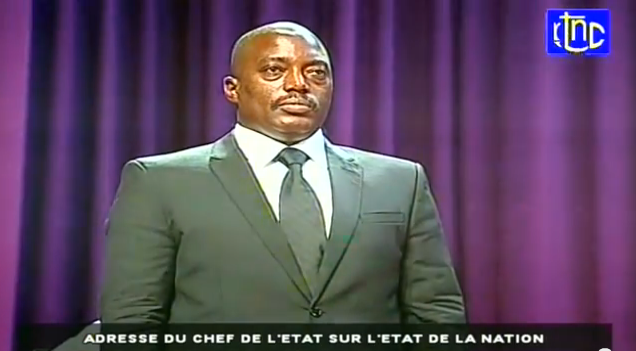For those of us who think numbers and statistics can give a useful––albeit partial––insight into political and social dynamics, the Congo frustrates. Read More
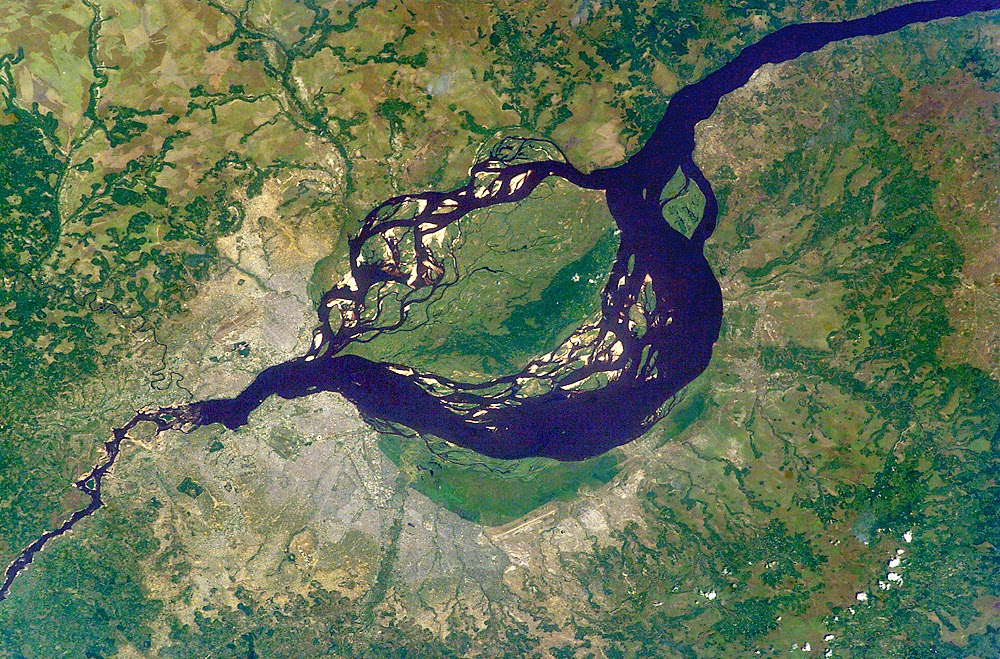
Jean Omasombo est chercheur au Musée Royal de l'Afrique Centrale en Belgique et directeur du Centre d'Études Politiques à l'Université de Kinshasa. Dans cette émission, nous parlons de la loi sur la création des nouvelles provinces, promulguée le 2 mars 2015. Pourquoi ce découpage a pris autant de temps? Est-ce que c'est une bonne idée de décentraliser le pouvoir sans avoir consolider des institutions fortes? Et quelle analyse faire du contexte politique––la bataille sur la succession du Président Kabila, et les divisions au sein de la Majorité Présidentielle––dans lequel cette décision a été prise? Read More
The battle over Kabila’s succession has begun, and is certain to be the leitmotif of Congolese politics over the coming two years.
To a certain extent––to a large extent––the recent controversies over the electoral law and calendar, and the arrest of opposition members and civil society activists (a whole slew were detained on Sunday), are all part of this battle. Read More
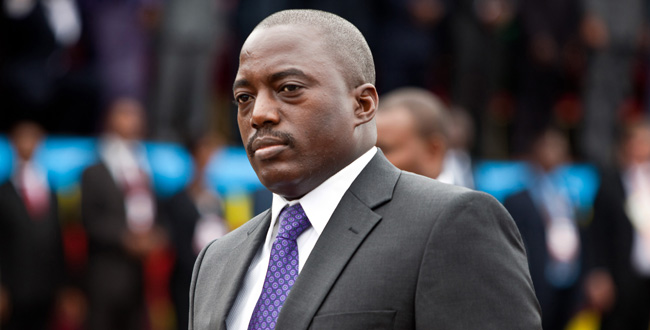
I was on Radio Okapi yesterday, discussing the failures and successes of the Peace, Security, and Cooperation Framework, which turned two… Read More
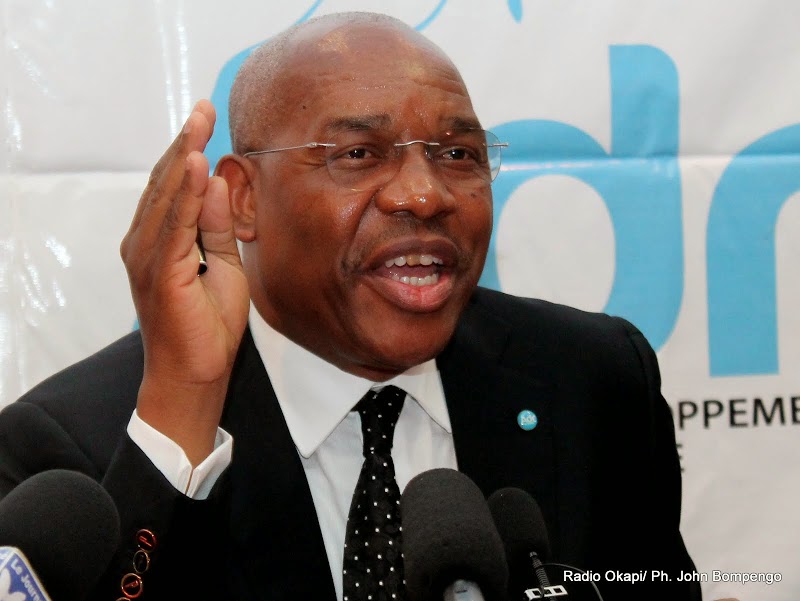
This is the second in our podcast series and is focused on the recent operations… Read More
Interested in getting an intensive immersion into the politics and history of the Great Lakes region of Africa? The Rift Valley Institute will be holding its annual Great Lakes course in Kenya this year, between the 27 June and 3 July. You can apply here. The Great Lakes Course covers the Democratic Republic of the Congo (DRC), Rwanda and Burundi. The state and its institutions will be cross-cutting themes this year. In the DRC, the Course will look into the debates around the electoral process and the ongoing violence in the Kivus. For Burundi, the shrinking political space ahead of the 2015 elections and its impact on democratic processes will be examined. For Rwanda, the course will focus on the renewed stifling of opposition voices and the role of the state in a post-genocide context. The course is in English and French with simultaneous translation. Read More
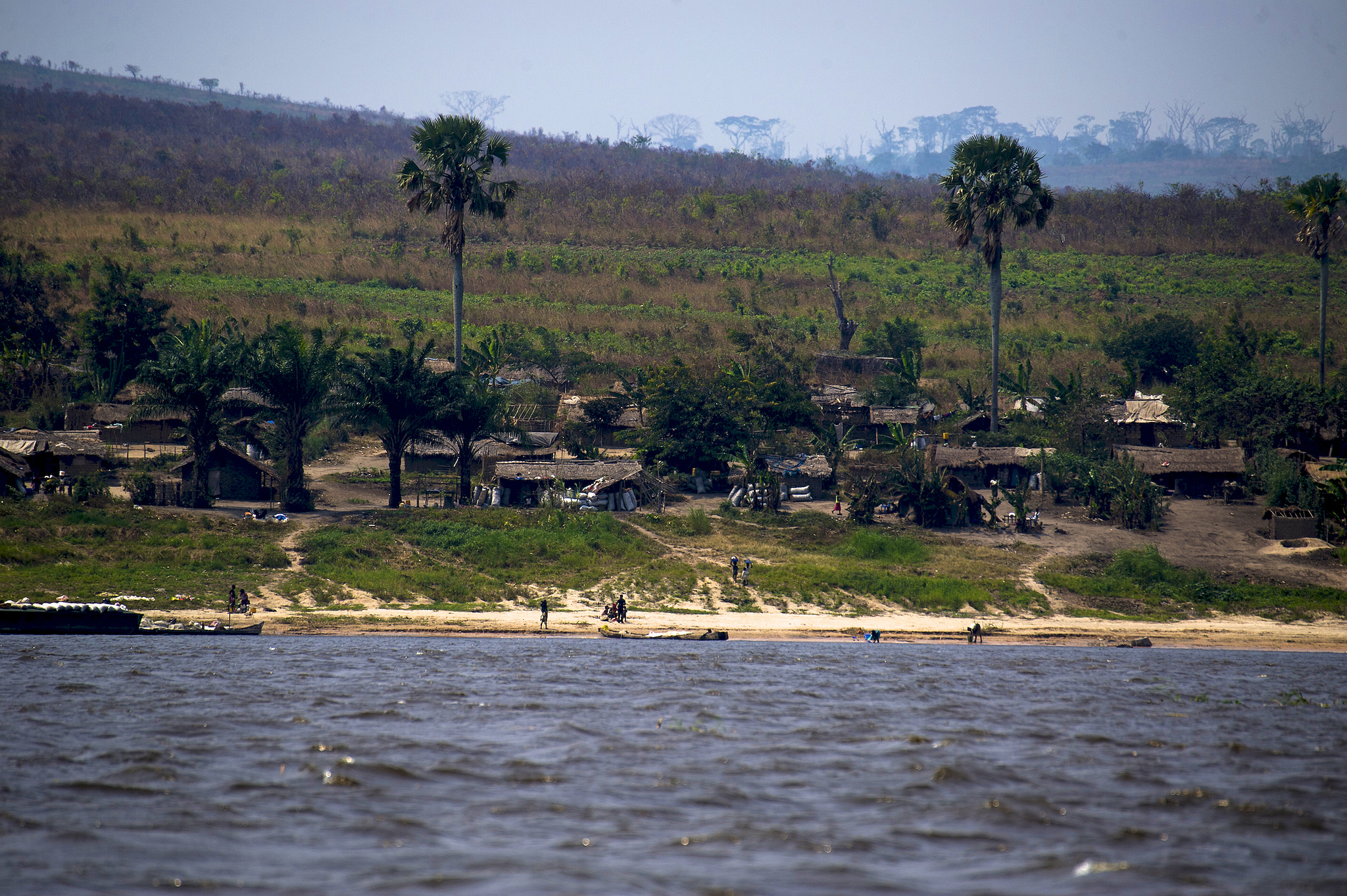
Two weeks ago, the national elections commission published its election calendar. This is the outline:
25 October 2015: Provincial, municipal, urban, and local elections;10 December 2015: Results of those elections announced;17 January 2016: Election of senators by provincial assemblies;31 January 2016: Election of governors and vice-governors by provincial assemblies;27 November 2016: Presidential and national parliamentary elections;7 December 2016: Provisional presidential results announced; total cost: $ 1.145 billion. Read More
The following is an article written for World Politics Review.
Anti-government protestors burn tires as they protest a new law that could delay the scheduled election to be held in 2016, Kinshasa, Democratic Republic of Congo, Jan. 20, 2015 (AP photo by John Bompengo).
Flying into Kinshasa, the capital of the Democratic Republic of Congo, in the early days of 2015, foreign diplomats could be excused for being disoriented. The news in the international press was focused on an impending offensive against Rwandan rebels in the east of the country, an area to which the United Nations peacekeeping mission––the largest in the world––had just relocated most of its troops and staff. Read More
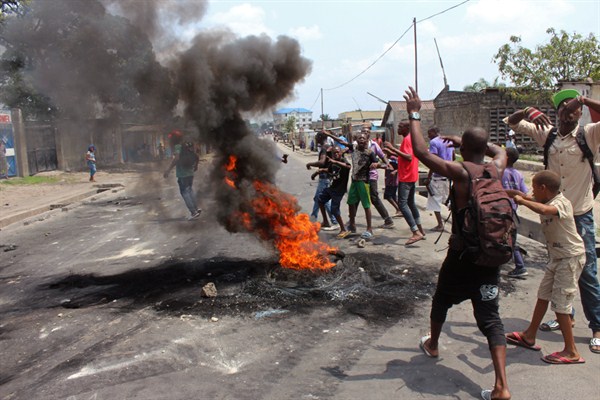
Headlines from Kinshasa have over the past weeks have spoken about a controversial electoral law and a brutal crackdown on demonstrations. The… Read More
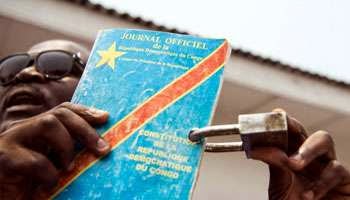
The past three days has seen the worst protests in Kinshasa since the controversial elections three years ago. The violence was sparked by a proposed electoral law that links the electoral process to the census, which could delay national elections by several years and illegally prolong President Kabila's stay in power (he has to step down in 2016). Read More
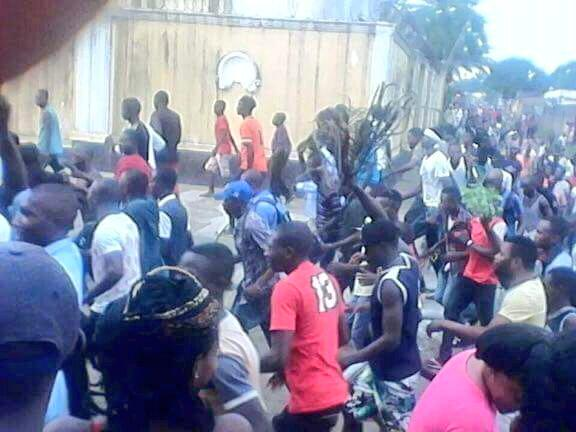
The following is a guest blog by Judith Verweijen, a researcher at the Nordic Africa Institute in Uppsala, Sweden, and at the Conflict Research Group at Ghent University.
On Monday 5 January 2014, the Congolese military (FARDC) and the South-African contingent of the United Nations' Force Intervention Brigade mounted a surprise attack against a Burundian rebel group operating in Uvira territory (South Kivu) under the name Forces Nationales de Libération (FNL). Deploying no less than nine helicopters, the joint operation soon managed to capture the group’s main bases. The rebels on the run were hunted down over the next days, with some reportedly fleeing into the Itombwe forest and others trying to cross into Burundi. Read More
The deadline provided by the United Nations, the ICGLR and SADC for the FDLR to demobilize expired on Friday. Almost immediately, the UN and Congolese army launched military operations ––not against the FDLR, but against the FNL, Burundian rebels who have several small bases in the Rusizi Plain in South Kivu. The UN said that this attack was a way of clearing the ground for a broader offensive against the FDLR in the coming days. Read More
This is a guest blog by Rachel Sweet, a PhD candidate at Northwestern University. Her research focuses on the politics of armed groups in eastern Congo, in particular on how preexisting business and bureaucratic practices influence armed group organization.
The escalation of violence in North Kivu’s Beni territory has grown increasingly worrisome since initial massacres in October. Not only has the kind of violence become more brutal––including scenes of decapitation and disembowelment that were previously uncommon in Beni and a shift toward attacks in daylight––but the number of victims has grown dramatically. Sources in civil society suggest that over 200 civilians have been killed in the past three months. Read More

Congolese Minister of Information Lambert Mende, on a visit to FDLR combatants in Kanyabayonga with Deputy SRSG… Read More
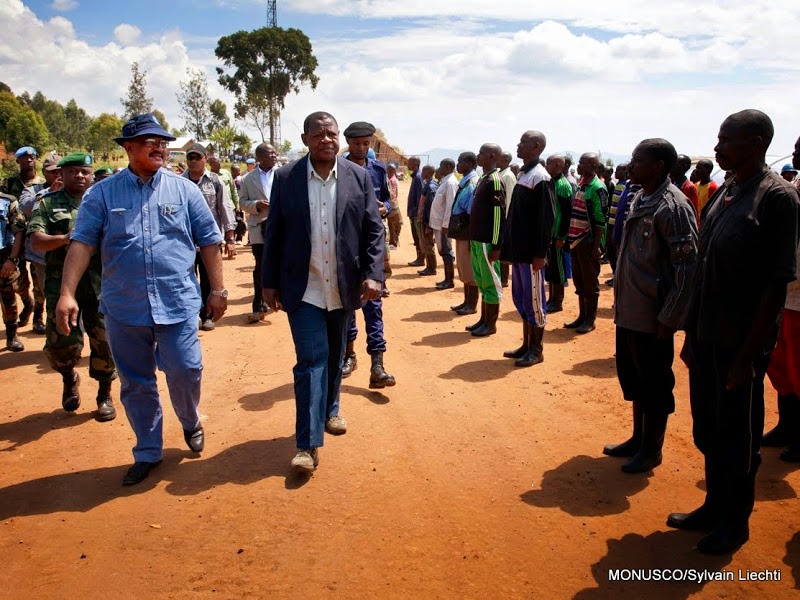
Courtesy RTNC
This morning, Joseph Kabila delivered his annual state of the union address. Dressed in a black tie and suit––perhaps a sign of respect for the recent victims of massacres in the eastern Congo––Kabila's speech lasted for an hour and twenty minutes, in front of both houses of parliament, most accredited ambassadors, and most governors and ministers. Read More
